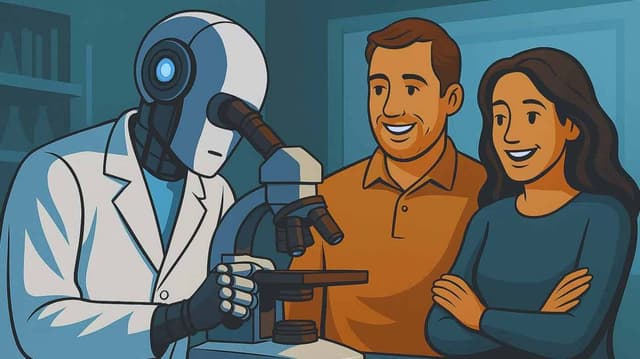Columbia University doctors achieved the first pregnancy using an AI system called STAR, which helped a couple conceive after an 18-year struggle by discovering viable sperm in a man with severe infertility.
• STAR uses AI to scan semen samples from men with azoospermia, a condition with nearly zero measurable sperm, instead of the typical 200-300M cells.
• The system scanned 8M microscopic images in under an hour, locating 44 cells, whereas human technicians found zero after two days of searching.
STAR is only used at the Columbia University Fertility Center for now, with an estimated $3K cost compared to as high as $15-30K for a single IVF cycle.
Research Lab Epoch AI just published an analysis of what a U.S.-led AI Manhattan Project could look like, believing the initiative could significantly accelerate progress and achieve a 10,000x increase in AI training scale over GPT-4 by 2027.
The AGI/ASI race is no longer just a corporate competition, but a global sprint to mobilize resources for energy and AI infrastructure. Just like major national efforts of the past (Apollo, Manhattan Project), being the first country to achieve this technological milestone will hold humanity-altering implications.
